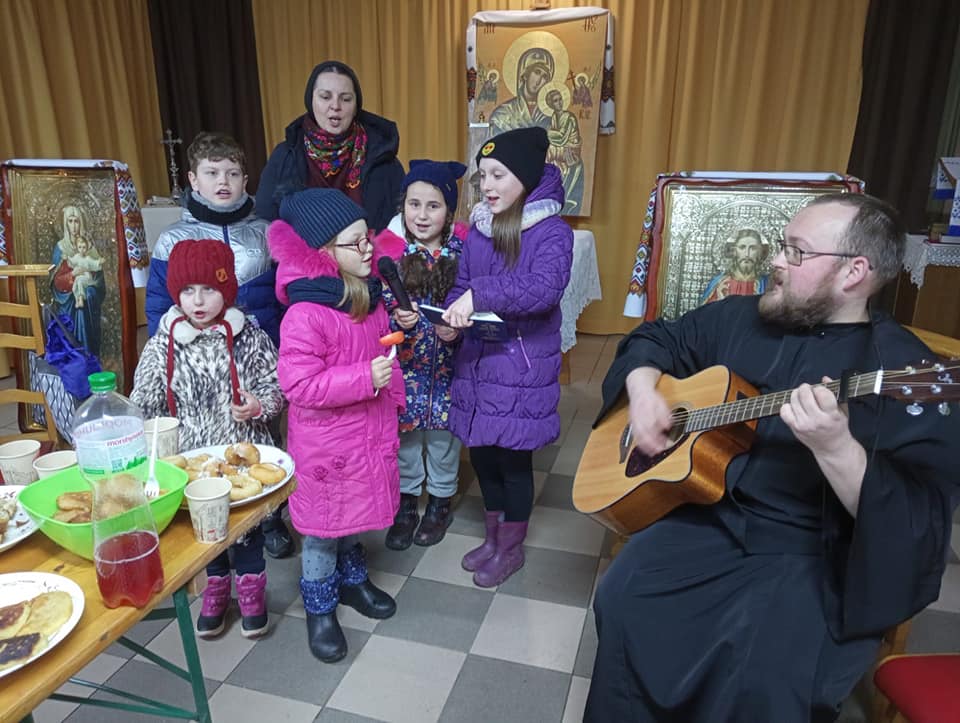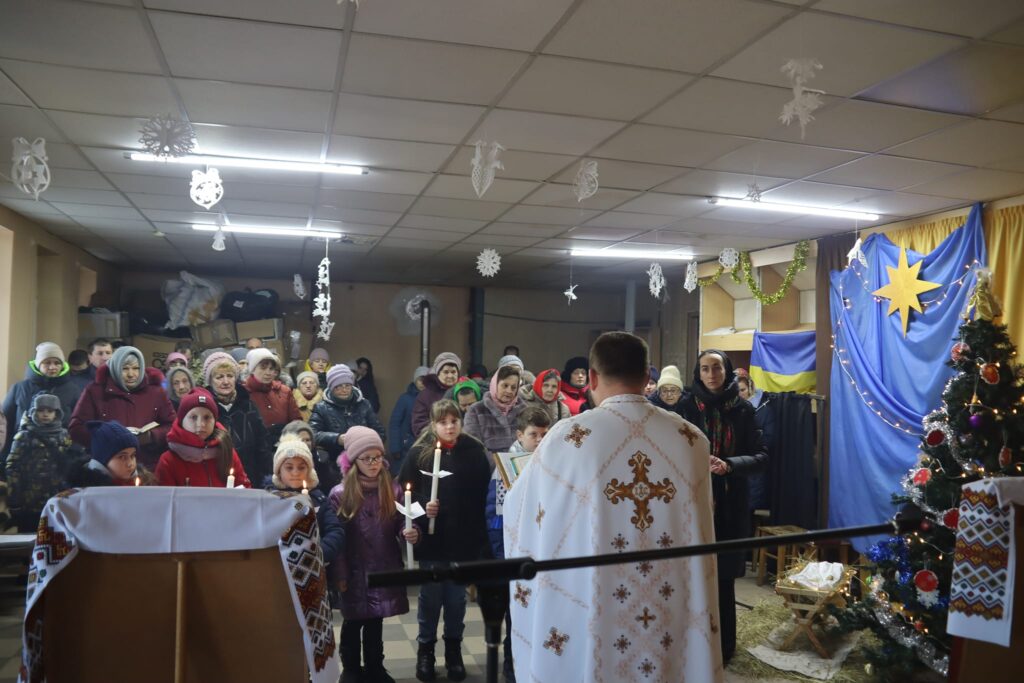The testimony of the Redemptorist Sisters in Ukraine
“The spiritual component of every person is very sensitive. Obviously, in a war, there are so many different inner experiences, so many conflicting emotions and feelings, so that sometimes, especially at the beginning of the war, it was difficult even to pray,” confesses Sr. Theodora Shulak MSsR from Ukraine, who was elected superior general of the Missionary Sisters of the Most Holy Redeemer in October last year. This women’s congregation has been active in Ukraine since 1998.
The Ukrainian province has five communities with 26 sisters. They help the Redemptorist Fathers in parishes, work with young people and children in catechesis, and organise summer camps, pilgrimages and retreats.
The war put a strain on the lives of these religious, all under 50 years of age. “It seemed to us,” Sister Theodora continues, “that we were left to ourselves with our fear, anger and pain. At times we were frightened by the feeling that hatred had crept into our hearts. At times I experienced almost a kind of splitting: on the one hand, during community prayer, I would give thanks and praise to God, and on the other hand, back in my room, I would experience the most contradictory feelings that I could not manage. One day I realised that this separation was not Christian and had nothing to do with our God: Jesus rose from the wounds. He knows what it means to bear these wounds and experience pain to the point of death. I understood that I can survive this tragedy only in Him and together with Him”.

This interior journey led the nun to entrust all her painful emotions and feelings to God, entrusting her prayer, which she addressed in tears: ‘Lord, I belong to you! – she prayed, almost crying out – You created us for life, and we are persecuted by death. You have called us to become a living hope for so many others, and we ourselves are covered by the shadow of death and fear’.
The experience of inner life taught the missionary to remain silent after prayer, to give God time to answer her request. “I said, ‘I will wait as long as it takes, but do not leave me alone in all that I am experiencing,'” the nun recalls.
War requires continuous discernment not only for the inner life but also for pastoral care. Sister Theodora, who from 2013 until October 2022 was provincial superior of the Redemptorist Sisters in Ukraine, recounts that after the start of the Russian invasion, they found themselves rethinking their activities to serve better the Church and the people in the new situation.
In March, about a dozen German and/or English-speaking nuns went abroad (Germany, Austria, Ireland) to lend a hand to Catholic facilities that had taken in Ukrainian refugees. For more than six months, they helped their compatriots to fill out documents, visited the sick and injured in hospitals and assisted the children of refugees in local schools.
Another area of their service is psychological assistance to war victims. Several nuns who had obtained specialisations in psychology and psychotherapy decided to attend further specific courses to help people overcome grief and trauma. “In some of our convents,” explains the missionary, “we have also taken in refugees; among them was a Tatar Muslim family. While they were staying with the nuns, their baby was also born. And then they wrote a very touching post on Facebook that they never thought they would experience this relationship between Christians and Muslims so closely”. For the past ten years, the Missionary Sisters of the Most Holy Redeemer have also had a community in Chernihiv, the capital of the region of the same name in northern Ukraine.
In the first months of the war, the sisters could not continue their mission in Chernihiv. They had been forced to leave the city surrounded and bombed by Russian soldiers. When they returned in April, they found devastation. Among them was Sister Theodora, also a psychotherapy specialist. “We went to visit people in the places that had been hardest hit,” she recounts. “People had lost their loved ones, their homes, everything. Through dialogue and listening, we were able to help them overcome some of their depression or panic attacks. These are people who really need to know that someone is close to them, someone who is able to bring hope and faith when they falter”.
She adds that although anger is a natural reaction to injustice and suffering experienced, it is important that it does not become the prevailing emotion and that people know how to choose life, even in small gestures. As did a lady I met in Chernihiv, who planted a wonderful vegetable garden around her house that was entirely destroyed by the bombings. “I,” the lady told the young religious, “focus on the smallest things in life. Look at this little plant that has just sprouted from the earth: it will grow and live”. This, for Sister Theodora, is a testimony of what it means to choose life.
by SVITLANA DUKHOVYCH
L’Osservatore Romano – February 21, 2023







